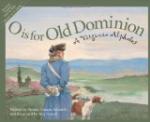Already the blaze was about the gasoline font. All knew that there was over a barrelful of the inflammable liquid in the tank on the upper deck. Calling to the sailor to get the shore-boat ready, the Commodore scooped up the fallen flour and cast it again on the fire. Distracted Lady Fairweather suddenly rushed to her cabin and back again, and she too wildly cast a shower of something white into the blaze. Then she stood pale and speechless, all unconscious of the dainty, empty pink box clasped in both hands, and of her own heroism in sacrificing her complexion to save the houseboat. As it turned out, we had no need to row ashore. With little or nothing to account for it, except the perversity of gasoline, or perhaps the contents of the little pink box, the flames with a final flare went out.
Then we took account of the situation. Flour was everywhere. Nautica had eyebrows and hair singed, though she found that out only when she got the flour off. It was hard to tell what was the matter with the Commodore, or to take his troubles seriously. He had slightly scorched hands of course. But then one forgot them in looking at his expressive face made out of flour and soot, and in watching him spill breakfast food and tapioca when he walked.
We never knew how the fire came to start, any more than how it came to go out. When fairly presentable again, we went up on the upper deck to find a cool place under the awning.
Evidently, we were adapting ourselves promptly to the ways of the country. Having fires seems to have been one of the chief diversions in old James Towne, and we had no sooner got to the island than we fell in with the custom. It was not a good custom. Even with the fire out we were in trouble; for Gadabout hadn’t a piece of bread to her name, and we had thrown on the fire the last bit of flour aboard. We were falling in with more than one of the ways of the colonists—it was fire and famine too.
The Commodore suggested that we send a message to the owner of the island praying that a “Supply” be despatched to the starving new colonists. But Nautica held that such an appeal should be made in person; that the Commodore, like a true Captain John Smith, should start out himself to get food for his famishing little colony.
Thus put upon his mettle, the Commodore, trailed by the sailor with his basket, soon set off along the island road. Upon reaching the neighbourhood of the church ruins he met an old negro.
“Mornin’, suh.” And the shapeless hat came off in a way that told that this was a survival of the old school.
“Good morning, uncle. Can you tell me which way to go to find the big house?”
“Yas, suh. I don’ b’long heah myse’f, suh; but you see dat brick house down de road yondah, what’s done been burn down? Well, dat was de big house, yas, suh. But it ain’ no good to stop dere now, no, suh. You go right on by, and de big house now is de firs’ little house you comes to.”




